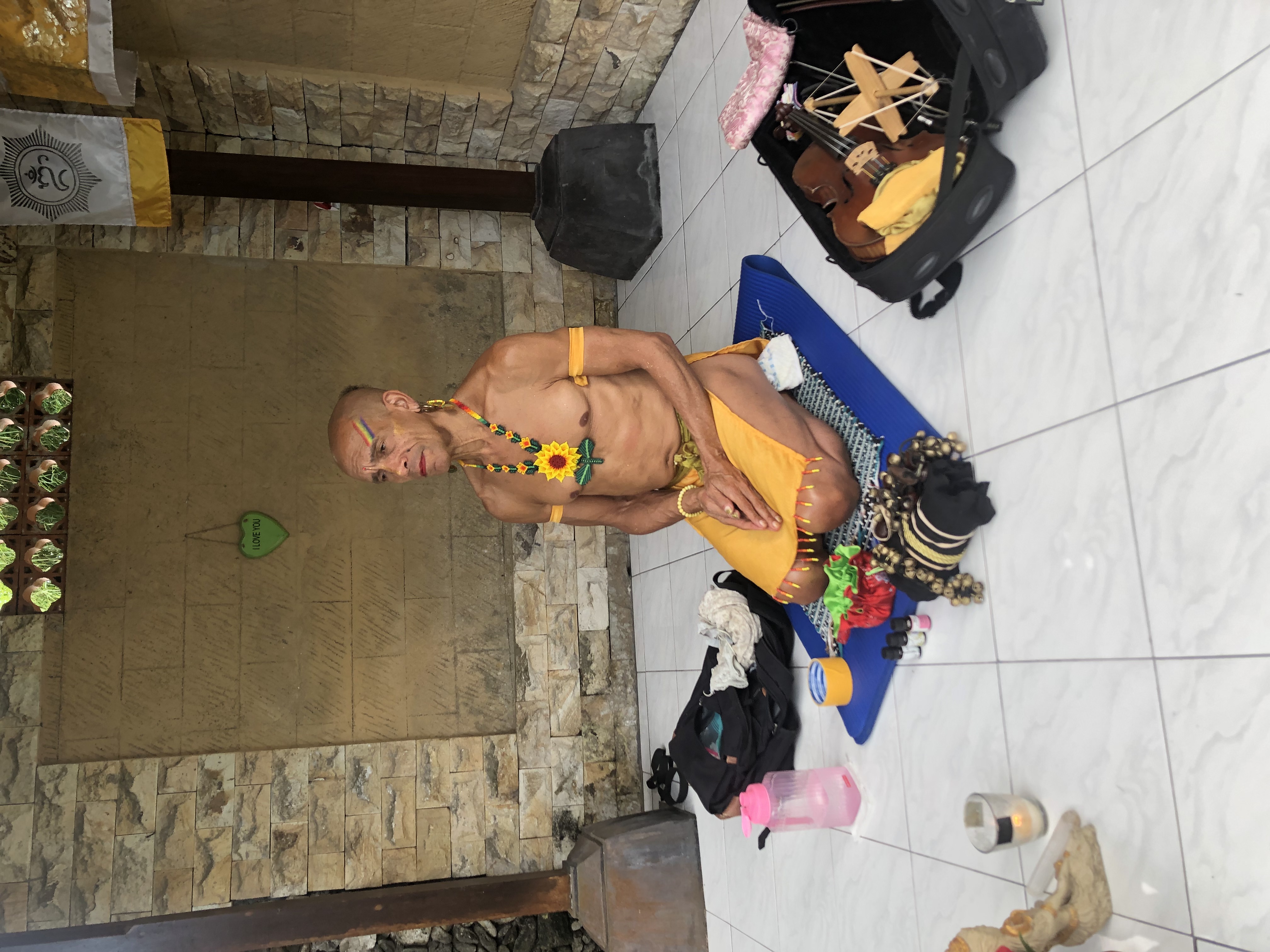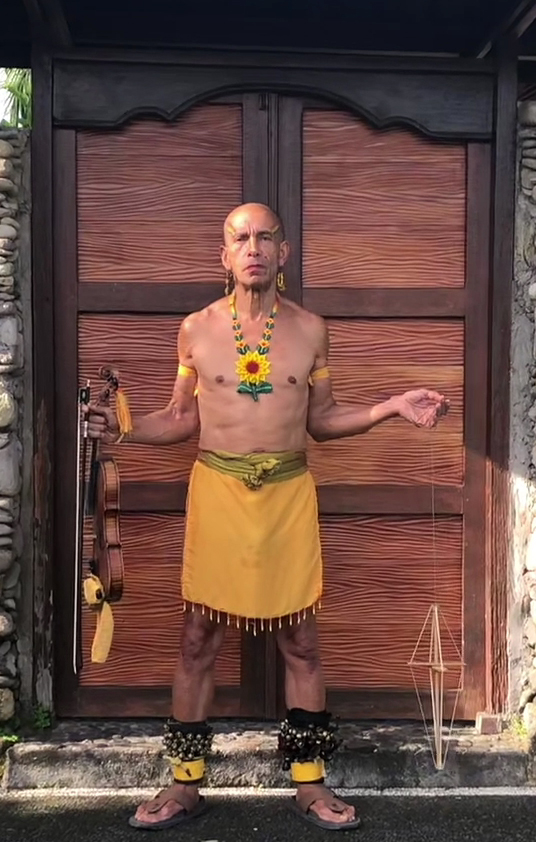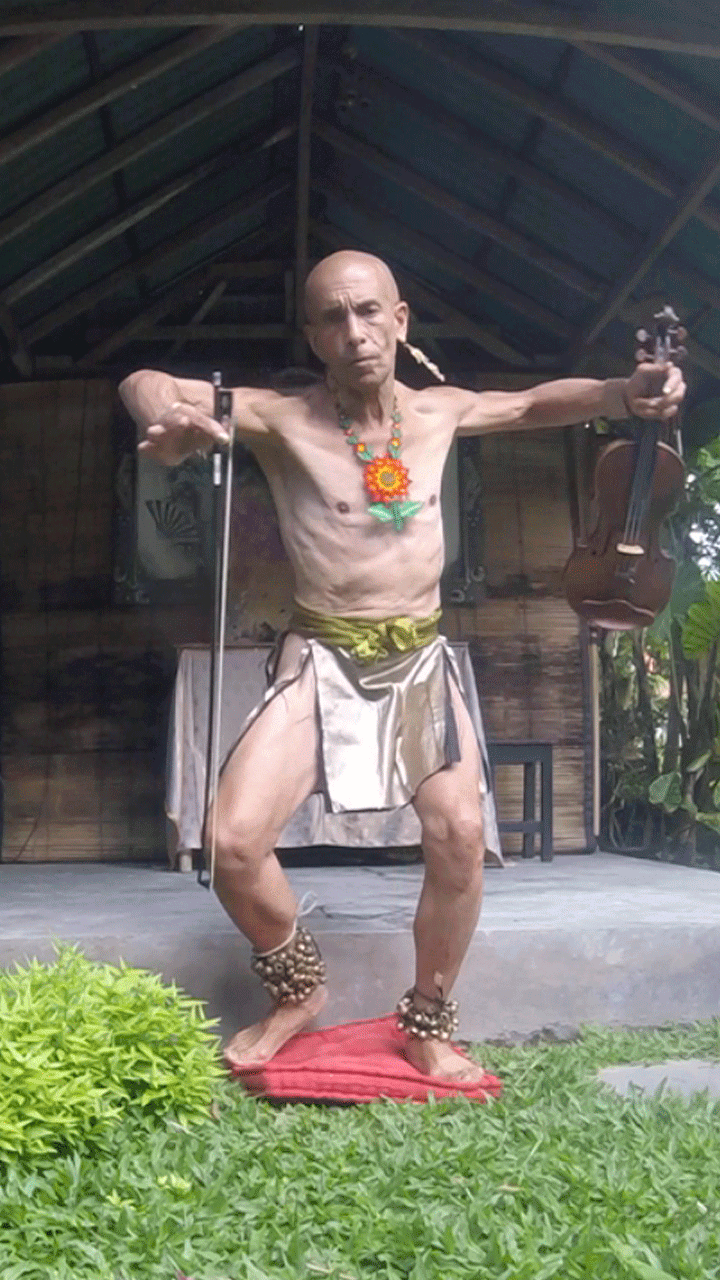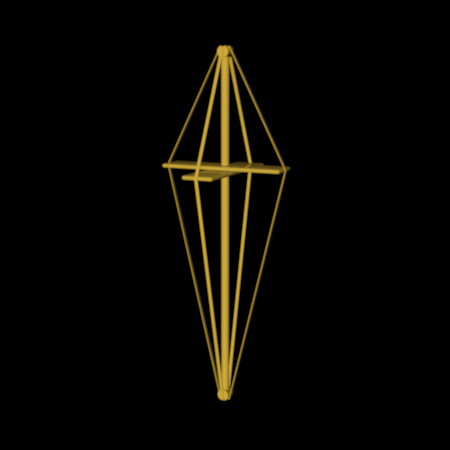Who Is Thoth?
From Subways to the Stars: The Operatic Journey of Thoth
 With his golden costume, soaring countertenor voice, and spiritual
performances that blur the lines between music, ritual, and myth, Thoth
is one of New York City's most iconic underground artists. Born Stephen
Kaufman on June 19, 1954, in Manhattan, Thoth has carved out a singular
path through the world of music, performance, and identity.
With his golden costume, soaring countertenor voice, and spiritual
performances that blur the lines between music, ritual, and myth, Thoth
is one of New York City's most iconic underground artists. Born Stephen
Kaufman on June 19, 1954, in Manhattan, Thoth has carved out a singular
path through the world of music, performance, and identity.
Raised in a household steeped in artistry and activism, Thoth’s early life was anything but ordinary. His mother, Elayne Jones, a groundbreaking timpanist for the American Symphony and New York City Opera, was one of the first Black women to break racial barriers in classical music. His father, George Kaufman, was a physician and civil rights advocate. The family marched with Martin Luther King Jr. and protested the Vietnam War—experiences that embedded a lifelong commitment to justice and expression.
Beginning the violin at age seven, Thoth eventually attended the prestigious LaGuardia High School of Music and Art, where he earned accolades for his musicianship. After moving with his mother and sisters to San Francisco, he pursued a degree in comparative literature, but it was on the streets—not in the classroom—that his true voice emerged.
In the late 1980s, Thoth began busking in San Francisco’s BART stations, first with classical violin, then with deeply personal, improvisational “musical tone poems.” He found creative kinship with percussionist Michael Chiaravelotti, and together they formed the band "Thoth," recording four albums and performing widely in the Bay Area. When the band dissolved in 1998, Thoth reinvented himself once again.
In 1999, he moved to New York City and transformed the Bethesda Terrace Arcade in Central Park into his sanctuary—a space he called the “Angel Tunnel.” There, adorned in gold and armed with a violin, foot percussion, and an operatic voice, he began to “prayform”: a term he coined to describe his mystical blend of song, movement, and storytelling. His magnum opus, The Herma, a three-part “solopera” sung in a language of his own invention, captures his belief in the transcendence of art.
His story caught the attention of filmmaker Sarah Kernochan, whose documentary Thoth won the Academy Award for Best Documentary Short in 2002. Despite a brush with mainstream exposure—he was famously rejected by America’s Got Talent in 2006—Thoth has remained defiantly independent, performing on his own terms.
In 2008, fate brought him Lila’Angelique, a fellow performer he met in the Angel Tunnel. Their creative and spiritual partnership continues to enchant audiences around the world, as they perform together with a shared sense of devotion and artistry.
Thoth is more than a musician. He is a visionary, a living myth, and a reminder that the most sacred stages may lie not in concert halls, but in the echoing arches of a city park.

What Is A Walkabout?
Thoth’s Walkabout is not just a performance—it is a ritual, a ceremony, and a living work of art that unfolds in the public sphere. Equal parts music, dance, theater, and spiritual invocation, the Walkabout transforms everyday environments into mythic realms.
 It began in the late 1990s when Thoth, a classically trained
violinist, countertenor, and dancer, traveled to Amsterdam for a music
festival.
With no official venue, he took to the streets—dancing along the
canal, playing his violin, and singing to the sky. The response was
electric.
From that moment on, the Walkabout became his signature form of
expression.
It began in the late 1990s when Thoth, a classically trained
violinist, countertenor, and dancer, traveled to Amsterdam for a music
festival.
With no official venue, he took to the streets—dancing along the
canal, playing his violin, and singing to the sky. The response was
electric.
From that moment on, the Walkabout became his signature form of
expression.
Since then, Thoth has taken his Walkabout around the world: through the tunnels of New York City, the gardens of San Francisco, the alleys of Lisbon, and beyond. Each performance is raw and unamplified, relying solely on the power of his voice, body, and violin.

A Ritual in Motion
 Every Walkabout begins with preparation. Thoth adorns himself in
shimmering gold face paint, a yellow loincloth, sunflower beads gifted
by shamans in Mexico,
and ankle bells to keep rhythm. He anoints himself with aromatic
oils and opens the ritual space using a buzzing, cross-shaped instrument
he calls a
"Spirit Catcher".
Every Walkabout begins with preparation. Thoth adorns himself in
shimmering gold face paint, a yellow loincloth, sunflower beads gifted
by shamans in Mexico,
and ankle bells to keep rhythm. He anoints himself with aromatic
oils and opens the ritual space using a buzzing, cross-shaped instrument
he calls a
"Spirit Catcher".
Then, to the open drone of his violin, he sings a single word: “Anya” —a declaration of identity in his invented language, The Festad, meaning “I AM.” What follows is a journey through sound, movement, and emotion as he weaves through the space, singing, dancing, and channeling energy with operatic force.

A Range of Reactions
Walkabouts evoke a wide spectrum of responses—from awe to discomfort, tears to laughter. Some passersby stop in reverence. Others keep moving, puzzled or moved in ways they can’t quite explain. Thoth welcomes it all. The Walkabout is not meant to please—it is meant to awaken.
 Each one ends where it began, as Thoth spins the Spirit Catcher once more, closing the circle and sealing the space.
Each one ends where it began, as Thoth spins the Spirit Catcher once more, closing the circle and sealing the space.

More Than a Performance
In a world saturated with artificial sound and polished productions, Thoth’s Walkabout is defiantly organic. It asks for nothing but attention—and offers something ancient, intimate, and unforgettable in return.
Watch Tribal Baroque's Youtube Channel
Interested in seeing a Walkabout live or bringing Thoth to your city?
Contact
Copyright 2025 by Thoth All Rights Reserved
